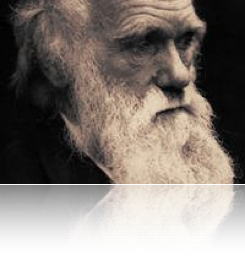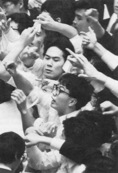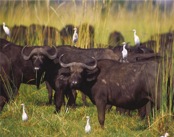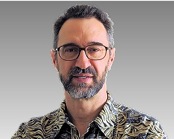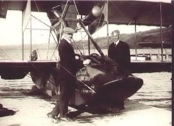Evolution Papers
Comment on Decoupling and the Cultures of Global Finance
mardi 18 janvier 2005
[Invited Article] International Studies of Management & Organization, 2004/2005, vol. 34, n° 4, pp. 131-136.
In this invited comment, I suggest an evolutionary alternative to the decoupling hypothesis offered by Lee and Lounsbury in their article. They observe variation in practices of national finance institutions and believe this variation can be explained by a decoupling between symbolic conformity and substantive operations. In contrast, I suggest that through an evolutionary perspective,

Diversity Through Persistence: Sustained Heterogeneity in Organizational Forms
lundi 12 juillet 2004
[Refereed Communication] Workshop on Diversity, Bologna, 12-13 July 2004.
Whereas most research on diversity has looked at creation, I’m focusing here on diversity as resulting from the persistence of unfit, or less-fit, organizational forms. My purpose is to explore the following apparent paradox. Although consistent selection pressure should lead to shrinking diversity and eventually to survival of the fittest forms, in many empirical settings, unfit forms do persist, allowing for a

The Dynamics of Community Evolution: Intrapopulation Commensalism, Interpopulation Symbiosis, and Ecological Dominance
jeudi 3 juillet 2003
[Refereed Communication] EGOS (European Group for Organization Studies) 19th Colloquium, Copenhagen, 3-5 July 2003, with Isabelle Royer and Filippo Carlo Wezel.
This paper investigates the coevolutionary dynamics taking place within organizational communities. Using an ecological framework, we shed light on the existence of diverse coevolutionary feedbacks unfolding both within and between populations. Hypotheses are supported by simultaneous equations, estimated using archival data describing

Howard Aldrich : de l'écologie des populations à l'évolutionnisme, vers une théorie intégrative du changement organisationnel
lundi 25 novembre 2002
[Refereed Book Chapter] in Sandra Charreire et Isabelle Huault (eds.), 2002, Les grands auteurs en management, Caen : Editions EMS, pp. 67-79.
La contribution d’Howard Aldrich à la théorie des organisations ne saurait être surestimée. Il a en effet joué un rôle pionnier pour deux apports majeurs à la théorie des organisations : l’écologie des populations et l’évolutionnisme. Ces deux thèmes, qui ont fait l'objet d'un ouvrage de référence chacun : Organizations and Environments (1979) et

How Established Firms Survive Gales of Creative Destruction: A Study of the Evolution of the US Aircraft Industry, 1903-1998
dimanche 22 septembre 2002
[Refereed Communication] Strategic Management Society 22nd Conference, Paris, 22-25 September 2002, with Gino Cattani, Isabelle Royer, and Filippo Carlo Wezel.
Research on technological change has documented how entrants tend to outperform incumbents. Yet, an academic agreement is lacking regarding which organizations are responsible for innovations and what are the long-term consequences of technological progress for the demographic composition of populations. We believe that this question

Adaptation, Selection, and Learning in the Worldwide Aircraft Industry, 1903-1998
jeudi 4 juillet 2002
[Refereed Communication] EGOS (European Group for Organization Studies) 18th Colloquium, Barcelona, 4-6 July 2002, with Gino Cattani, Isabelle Royer, and Filippo Carlo Wezel.
The dynamic capabilities view has recently emphasized how under dynamic conditions of competition successful adaptation critically hinges upon the ability to innovate. Instead of simply defending a favorable position, firms are expected to consistently introduce new products and/or renew existing processes. Drawing from

Achieving Sustained Strategic Competitiveness: An Evolutionary Perspective on the French Newspaper Industry
lundi 18 mars 2002
[Refereed Communication] Strategy World Congress, Oxford, 18-19 March 2002, with El-Bekkay Essabar.
To achieve sustained strategic competitiveness, companies have to take into account three components: adapt to the environment, and try to mold it; choose the right strategic positioning, and make sure their resources, competencies and capabilities evolve with the environment. A study of the French newspaper industry since WWII shows that successful companies constantly transform themselves


My research is currently strongly focused on how organizations and industries evolve. I draw from biology, of course, and also from the huge literature in the social sciences that has tackled this question.
I am engaged in several projects in this area, the main one aiming at explaining the persistence of organizational polymorphism.

